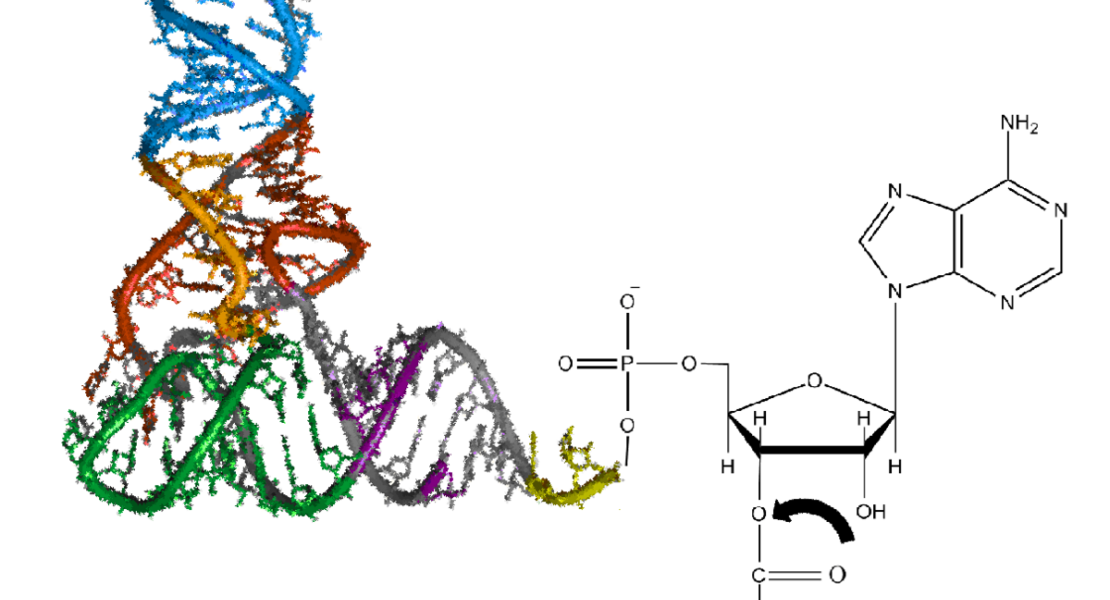Unusual noncanonical intron editing is important for tRNA splicing in Trypanosoma brucei

Abstract
In cells, tRNAs are synthesized as precursor molecules bearing extra sequences at their 50 and 30 ends. Some tRNAs also contain introns, which, in archaea and eukaryotes, are cleaved by an evolutionarily conserved endonuclease complex that generates fully functional mature tRNAs. In addition, tRNAs undergo numerous posttranscriptional nucleotide chemical modifications. In Trypanosoma brucei, the single intron-containing tRNA (tRNATyrGUA) is responsible for decoding all tyrosine codons; therefore, intron removal is essential for viability. Using molecular and biochemical approaches, we show the presence of several noncanonical editing events, within the intron of pre-tRNATyrGUA, involving guanosine-to-adenosine transitions (G to A) and an adenosine-to-uridine transversion (A to U). The RNA editing described here is required for proper processing of the intron, establishing the functional significance of noncanonical editing with implications for tRNA processing in the deeply divergent kinetoplastid lineage and eukaryotes in general.
